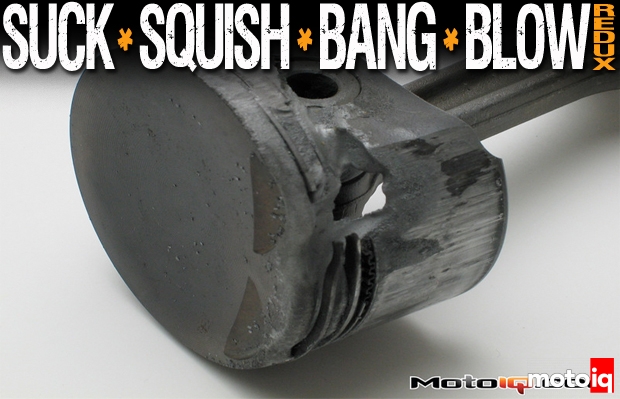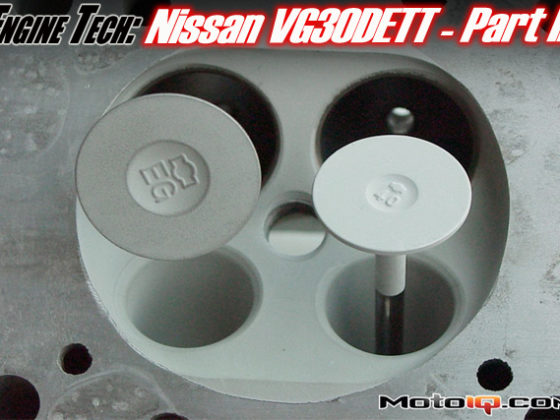
Suck, Squish, Bang, Blow part 4- The Five Deadly Sins of the Beginner
By Mike Kojima
We all make mistakes, especially when we are starting out as beginner enthusiasts. Cars can be very unforgiving machines, especially modified cars that have been tweaked for more performance. Unfortunately many seemingly minor mistakes can have very devastating and costly consequences.
I have isolated 5 common and easy to avoid mistakes that I have seen cost many of my friends, customers and racers a lot of expensive damage. Although these mistakes are very basic, many a beginning enthusiast has fallen victim to these five very easily preventable beginners' goofs. Don't do this stuff or let your friends do it either and a larger percentage of failures can be avoided. Take advantage of our experience so you don't have to!
For part one of the series click here!
For part two of this series click here!
For part three of the series click here!
1. Do not run your engine out of oil!
This seems like a no brainer but I have seen innumerable engines on street and race cars destroyed like this. This is probably my #1 problem that has cost more engines than anything else. Engines burn a small bit of oil with every revolution as it escapes past the valve guides and rings of even most well built engine. Oil can also leak past seals and gaskets or get blown out of the engine's crankcase vent system. Worn engines burn more oil. Because of these loss factors, which are different for every engine, you must diligently track your engine's oil consumption.
 |
| Well no duh, running your engine low on oil hurts it. Usually the soft metal bearings die first followed by crank, rods, pistons, the valvetrain and the whole engine if you are especially dense and keep on going. What most people don't realize is how fast this can happen. I have run into many people who don't seem freaked out when their dipstick shows no oil. They ask stuff like “Can I add some next week? I am busy now”. At high load and RPM a loss of oil pressure can destroy an engine in milliseconds. I hate to insult many of our reader's intelligence but this comes up so many times from people I could have sworn know better. |
Oil is your engine's life blood. Your engine's bearings are made of soft metals like lead, tin and copper that depend upon a pressurized oil film to eliminate metal to metal contact. Without oil they can be destroyed in seconds. When the bearings go, the rods and crankshaft are millseconds behind. Pistons, rings and cams will only last minutes or even seconds without a film of protecting lubricating oil.
Check your oil periodically (like with every tank of gas until you get a feel for your engine's oil consumption rate) and change it at the manufacturer's recommended intervals or sooner. 3000 miles per oil change is not unreasonable if you like to drive in a spirited manner. For race cars or track driven cars, check your oil level every session on the track. Synthetic oils like Motul or Mobil One can keep your engine running at its peak longer by reducing friction and wear.
Synthetics are just about mandatory when running your street car on the track. Street cars typically don't have enough oil cooling for track use and sump temperatures of over 300 degrees are common if you are a decent driver on a summer day at the track. Modern heavy metal free bearings start to deteriorate at 270 degrees and mineral oil starts to oxidize and deteriorate rapidly at temps over 250. Do yourself a favor and run synthetics at the track and change them right afterwards.


